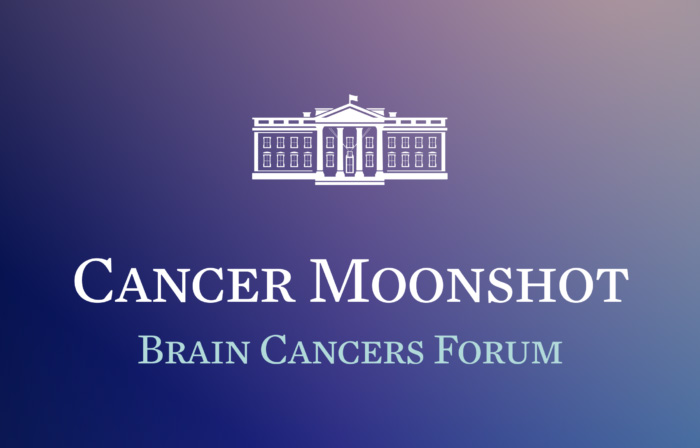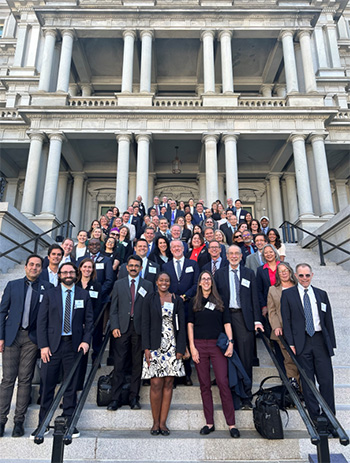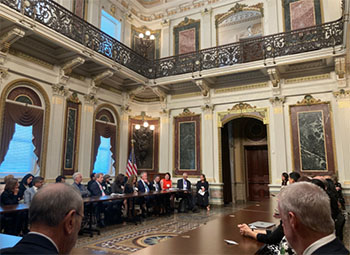Seattle Children’s Lead DIPG Researcher Attends Brain Cancers Forum at The White House
6.1.2023 | Ashley Speller

The White House recently convened patients, caregivers, oncologists, researchers and administration officials for the Cancer Moonshot Brain Cancers Forum as the administration moves to advance progress for patients with glioblastoma (GBM) and diffuse intrinsic pontine glioma (DIPG).

Photo courtesy: Danielle Carnival/ Twitter
Among the attendees invited was Dr. Nicholas Vitanza, an attending physician in Seattle Children’s Cancer and Blood Disorders Center (CBDC) and the organization’s DIPG Research Lead.
Cancer Moonshot is an initiative that aims to reduce the death rate from cancer by at least 50 percent over the next 25 years and improve the experience of people and their families living with and surviving cancer.
“I am grateful to this administration for advocating on behalf of the many families affected by cancer, in particular brain and spinal cord tumors, through the Cancer Moonshot program,” shared Dr. Vitanza. “I am inspired by President Joe Biden’s and Vice President Kamala Harris’ commitment to developing new cures for these cancers, and I am confident that their leadership will increase the speed of progress against these fatal tumors.”
During the summit, Dr. Vitanza joined DIPG experts from around the country, as well as Biden-Harris administration officials, to identify obstacles in advancing better treatment options for patients and to provide updates on the most recent innovations in the field.
“Through the discovery and implementation of new therapies, including targeted immunotherapy such as chimeric antigen receptor (CAR) T cells, the commitments spurred by this Forum will help us move closer to improving the lives of children affected by these tumors and one day curing their disease,” he said.
Seattle Children’s has one of the largest pediatric cellular immunotherapy programs in the world, and earlier this year announced that it had marked a milestone with the enrollment of its 500th patient over the last decade in its CAR T-cell immunotherapy clinical trials.

Photo courtesy: Nick Vitanza/ Twitter
Shortly after, the organization announced the launch of BrainChild-04, a pioneering multi-antigen-targeting immunotherapy clinical trial that will pave a new path in understanding and combating DIPG and other childhood brain or spinal cord tumors, for which there are no known cures.
“It is a privilege to be part of a team at Seattle Children’s that is driving innovation in laboratory research of pediatric brain and spinal cord tumors, but most importantly driving that translation to meaningful clinical trials that can improve the lives of our most in need patients,” Dr. Vitanza explained.
Each year, about 5,000 kids in the United States are diagnosed with brain tumors or spinal cord tumors, which are the leading cause of cancer death among children. Funding from the federal government, paired with philanthropic and industry support, is critical in continuing to move this important research forward and enables Seattle Children’s to leave no stone unturned in the search for cures.